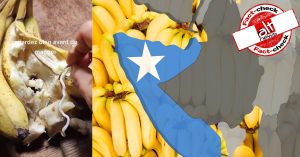Alternative treatments Ayurveda, Siddha, Naturopathy, Yoga & Homeopathy are being increasingly promoted as the legitimate and only treatments for Autism by the ministry of AYUSH, a government body, and private practitioners such as Dr. Batra’s clinic. Autism is a neurological disorder that manifests during early childhood, irrespective of gender, race or socio-economic status. It is mainly characterized by its unique social interactions, non-standard ways of learning, keen interests in specific subjects, inclination to routines, challenges in typical communications and particular ways of processing sensory information. Broadly, people who have autism or, are on the autistic spectrum (including autism spectrum disorder or ASD), suffer from learning differences and developmental disabilities.
Alternative treatments for disorders such as Autism have increasingly come under scrutiny by practitioners of modern medicine and is a subject of much debate. Ministry of AYUSH and its associated bodies have argued that the clinical studies that have been undertaken for treatment of autism using alternative therapies have shown positive results. While inaugurating a homeopathy research lab at Dr Anjali Chatterjee Regional Research Institute for Homoeopathy, Union minister of state for AYUSH, Mr. Shripad Yesso Naik had claimed, “This institute has undertaken several clinical research studies on autism, psoriasis, vitiligo, breast cancer, hypertension, migraine etc. along with proving of new drugs in homoeopathy with their clinical validations.”
Yet another line of treatment for autism using a combined therapy of Siddha, Ayurveda, Naturopathy, Yoga as well as Homeopathy has been claimed to be devised at the Mahatma Gandhi memorial government hospital (MGMGH) in Trichy. In support of this line of treatment, the district siddha medical officer Dr S Kamaraj had claimed, “Our (traditional Indian) medicine system has treatment for autism. But we are trying it for the first time in the government sector in the state. Initially, the autistic patients will receive treatment from any one of the methods. The progress of the patient will be monitored. If the patient requires the treatment in another method, it will be given. Ultimately, there would be great improvement in the patient’s activity”. In this case, it is being claimed that the knowledge prescribed in the textbooks of Indian medicine can treat autism.
Following these claims, we evaluated the research (scientific data published in journal articles and details of the clinical trials) to assess whether the above claims on autism treatments are backed by scientific evidence.
Alt News discussed the issue with Professor Edzard Ernst, MD, PhD, Germany and has authored several books on alternative treatments including the most comprehensive lexicon till date of Homeopathy.
Prof. Ernst said and we quote, “These treatments (that) are being promoted for autism, they are also frequently used for it, but there is – as far as I can see – not a shred of evidence that they affect the natural history of the disease. In my view, the promotion of unproven therapies is irresponsible and unethical.”
Hence, in the course of this article, we will discuss:
- The lack of evidence available for these alternative treatments thus showing its lack of efficacy,
- The lack of various scientific parameters of published research studies that claim to treat autistic patients
Researching evidence for Autism treatments based on AYUSH
Alt News examined the claims made regarding published clinical studies showing efficacy of alternative treatments for autism using resources from Google Scholar and PUBMED. Medical research on new mechanisms of a disease condition or information on new treatments are indexed by Google Scholar and PUBMED, health practitioners use the clinical and laboratory research to verify and seek this new information. As a corollary, the absence of scientific research information about a particular treatment in Google Scholar and PUBMED indicates lack of clinical or laboratory research for those treatments.
While researching published articles in PUBMED, an open source for health research funded by the US National Institute of Health (NIH), revealed no results on autism and AYUSH based treatments published by Indian researchers.
On the other hand, Google Scholar gave a few results related to autism and AYUSH treatments that were directed to any Indian publication listed as below:
1. Praful Barvalia, Homeopathic links (2011) Autism Spectrum Disorder: Holistic Homeopathy
2. A review paper published in 2018 by Prashant L Patil and Pravin W Bonde Department of Kaumarbhritya, Government Ayurved College, Nanded, India – “An Overview and Approach towards Autism and its Management in Ayurveda”
3. Several articles by a single author Mandayam Anandampillai Rajalakshmi uploaded in PDF format in research gate, which is a social media website for scientists, but not in a peer-reviewed scientific journal even though it claimed be so (Link 1, Link 2 and Link 3).
4. Mukherjee et al (2017) published in the International Journal of Ayurveda and Pharma Research titled “Studies of brahmi based unani compound formulation on autism to assess its efficacy”.
Publication 1: “Homeopathic links (2011) Autism Spectrum Disorder: Holistic Homeopathy”
A single case study presented to illustrate the treatment of autism by a team at the Spandan Holistic Multidisciplinary Institute. The institute also claimed to treat 123 autistic children until 2010 but none of the other case studies were discussed.
This study lacked any form of controls or comparison with control treatments. Also, the sample size here is only n=1. The outcomes of the other 123 children were not discussed. This seriously questions the attribution to homeopathy treatment with respect to the little improvement the patient experienced.
Moreover, Mr Praful Barvalia, is the Chairman and director of Spandan Holistic institute, Mumbai, which claims to be awarded as the most prestigious Centre for excellence in homeopathic childcare & rehabilitation by Ministry of Ayush, Government of India.
It should be also noted that this study was not published in a mainstream scientific peer reviewed mental health or autism related journal but in a homeopathy journal.
Hence, with lack of controls or comparison with placebo treatments in just a single sample size, ‘improvements’ of patient condition, if any, cannot be attributed to homeopathy. Even for statistical analysis such as t-tests to show significant improvement, a minimum of n=3 patients need to be considered. Therefore, homeopathic research in India, is proven to be illegitimate for autism (as it has been for other conditions across the world).
Publication 2: “An Overview and Approach towards Autism and its Management in Ayurveda”
This was a review paper with no other primary data but only methodology. Interestingly, this paper talked about the internal and external remedies as described by the “Acharyas” but gave no reference to where this knowledge is published and how it is tested for effectiveness.
Hence, a single review paper in the absence of research data doesn’t prove the validity of Ayurveda for autism. No other data exists to prove that this methodology described in the ancient texts have been proven to cure autism
Publication 3: Three papers on research gate by a single author MA Rajalakshmi (Link 1, Link 2 and Link 3)
Link 1: A review paper that discusses, the effect of music on autistic children
Link 2: A single case study, no controls and no experimental conditions. A report on symptoms and suggestions for diagnosis without actual experiments being conducted.
Link 3: This was a conference proceeding presented at XII National Homoeopathic Congress in Khajuraho, India. Also, the experiments were found to be incorrectly tested, i.e. lack of controls and the reports were based purely on subjective behavioural measurements that were not peer reviewed.
All the papers linked above were not peer-reviewed (not validated by other scientists of the same research area). This peer review method is a gold-standard for scientists that publish their data. Other scientists in the same field must review and accept or reject research work based on several scientific parameters. Hence, a non peer-reviewed article such as a blog entry, news article or a paper uploaded on research gate doesn’t classify as scientific data. Also, link 3 was the only research study here that again did not feature any controls in the so called ‘improvement’.
Publication 4: “Studies of brahmi based unani compound formulation on autism to assess its efficacy”.
Mukherjee et al (2017) published in the International Journal of Ayurveda and Pharma Research that discussed a small amount of change in experimental group assessed (using questionnaires) after a treatment of Brahmi medications. Only showing a p value significance, the study fails to discuss the number of recruited subjects or any other behavioural measurement conducted to compare with the control subjects.
When carefully observing the data presented in a table rather than a visual graph (presented as median + standard deviation or error), we found that the error bars were significantly high that it could cancel out the drug effect. This could, probably be the reason for not reporting this data in a graph.
Hence, when carefully studying the published data, it is likely that the researcher Arun Mukherjee and his colleagues tried to bury a ‘no-effect’ with statistical numbers, i.e. the drug may not have had any significant effect on the patient condition but wasn’t evidently stated as such.
Additionally, in India, a clinical trials registry (open access to public) shows the current research being conducted as a form of registered clinical trials. This means that in order to conduct any clinical research in humans, researchers need to apply and register all the relevant details of the study such as what is the preliminary or secondary data, name of the chief scientist, formulation of the drug and the funding source. This registry revealed several studies being conducted on autism and alternative treatments, but none of these studies showed any preliminary data that supported the claims of the respective trials on the basis of which the clinical trial was registered.
Conclusion
The prevelance of alternative treatments for autistic patients possibly reflects on the fact that a large amount of alternative treatments make highly exaggerated claims that may seem hard to compete with, as opposed to realistic evidence-based treatments. However, the scientific literature research on these claims do not give any evidence to support the claim that AYUSH based treatments work.
As shown above, single case studies with lack of controls, erroneously run statistics, reviews disguised as data publications and sub-standard data was found when carefully studying the research on autism with respect to AYUSH therapies. Indian researchers and AYUSH ministers made claims suggesting autism can be treated with traditional Indian therapies backed by newly emerging studies conducted by the institutes associated with the ministry of AYUSH. These claims include publicly funded alternative treatments and have gained huge traction with its gigantic budget increase of 13% in the recent Union budget.
As it is, legal battles, societal stigma and the perception of mental health illnesses makes an arduous task of public education on these issues. In addition to that, the government endorsing and funding institutions that give false hopes and claims to eradicate a complex disorder such as autism is morally unethical. The government as well as the health care providers should focus on giving education and direction to patients that are realistic, achievable and increase their quality of life.
Independent journalism that speaks truth to power and is free of corporate and political control is possible only when people start contributing towards the same. Please consider donating towards this endeavour to fight fake news and misinformation.




